smart service | september 2021
Thinking and feeling the landscape
LALI is a well-established collective that creates a common ground for discourse and action where answers and solutions to a social and environmental crisis are proposed. LALI promotes solidarity, union, and coexistence to encourage an integral change for the benefit of urban and regional development.
“Philanthropy for the environment” is how one could describe the approach behind LALI’s initiative which originated back in 2012. Restoring the relationship between human beings and nature is at the heart of the LALI declaration.
The landscape represents a right, and it is fundamental to recognise our responsibility to protect it.
Status & Application:
LALI is active in 19 different countries.
URBAN MENUS Analysis
Characterization along 5 societal goals: Happiness, Safety, Innovation, Profitability, and Circularity.
The graph below shows for which of these themes the product is mainly relevant on a societal level. Some products are more specialized, while others may be covering all topics equally. The results are based on a self-evaluation questionnaire that was developed by URBAN MENUS and filled in by the products or services themselves.
Below is an explanation of how the product or service may contribute to the 5 themes, based on the information provided by the solutions in the onboarding process as well as research by the URBAN MENUS team.
For more details about the analysis and the 5 main themes, please click here.
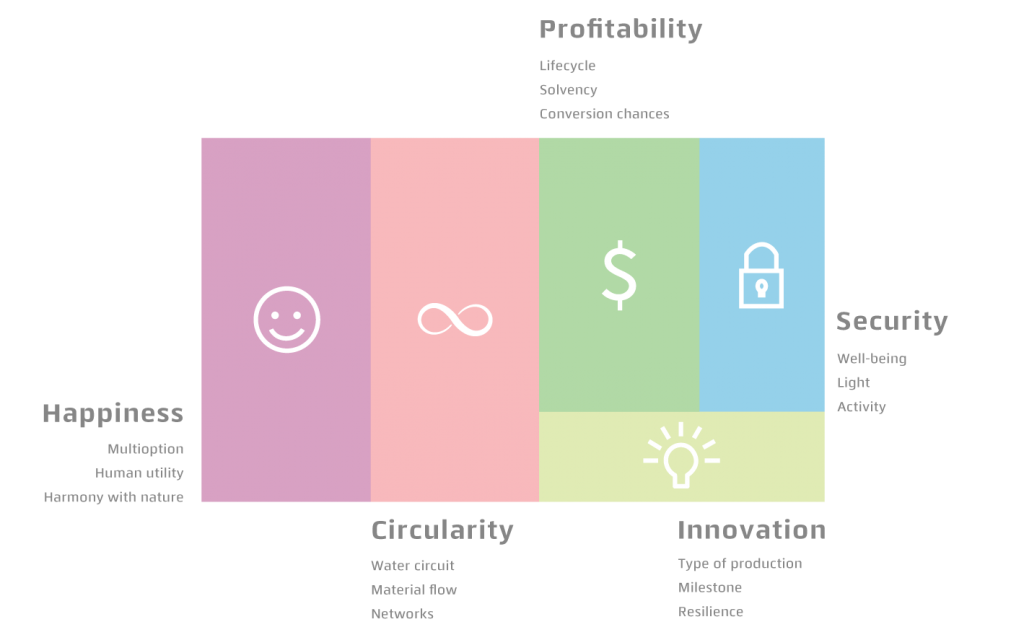





Happiness
Urban landscapes have an impact on our well-being. LALI addresses the management of the landscape (as a public good) and aims to create an open space for discourse, to develop harmonious and friendly urban life, building health and happiness.
Safety
LALI encourages the encounter of different age groups, the revitalization of little-used neighbourhoods, and better orientation in urban settings, thus contributing to a general feeling of safety in the city.
Profitability
Profitability is not a main focus of the initiative.
Innovation
The LALI initiative fosters solidarity, partnerships, and coexistence to facilitate comprehensive change for the benefit of urban and regional development. The initiative provides a platform that enables different actors to collaborate, learn from each other, and find innovative solutions.
Circularity
LALI aims to offer answers to various urban “urgencies,” such as the fight against climate change, the progress of the circular economy, the implementation of the Urban Agenda and the SDGs, sustainable mobility and the multiple needs for living in more human, cohesive, and greener cities.

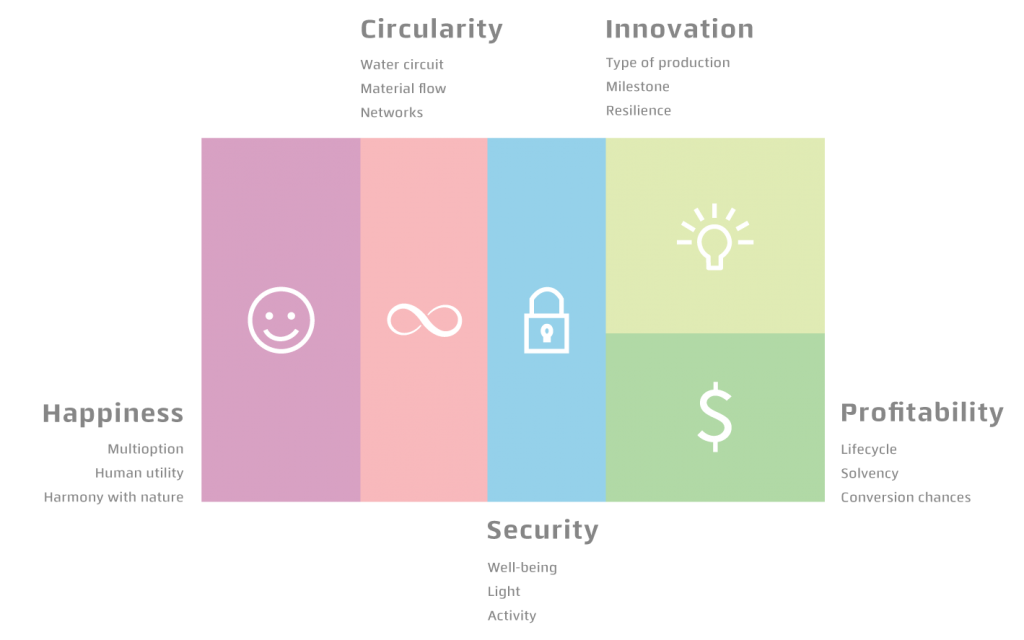
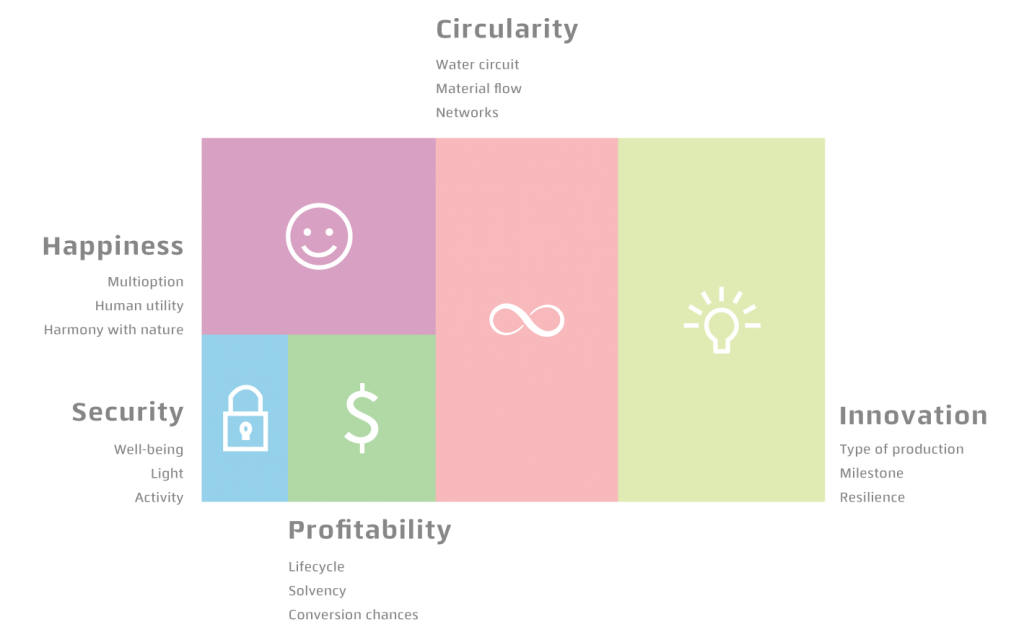
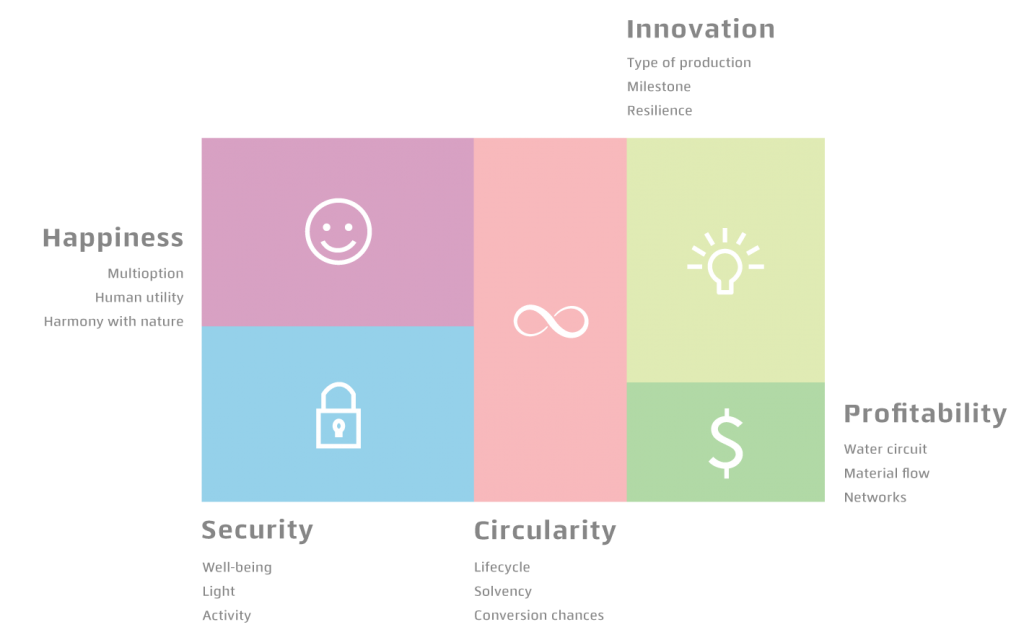
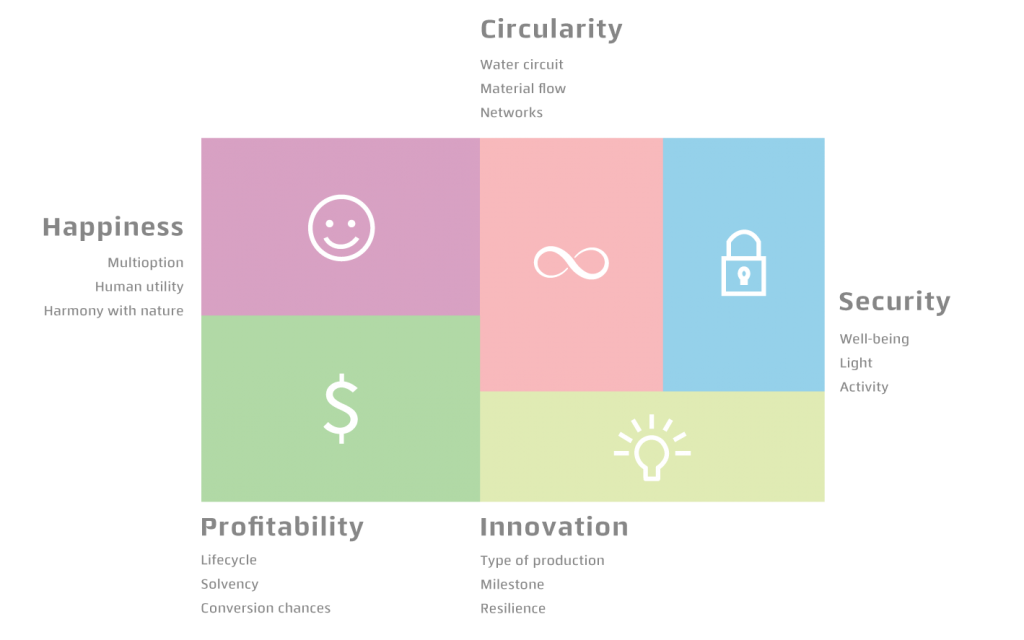
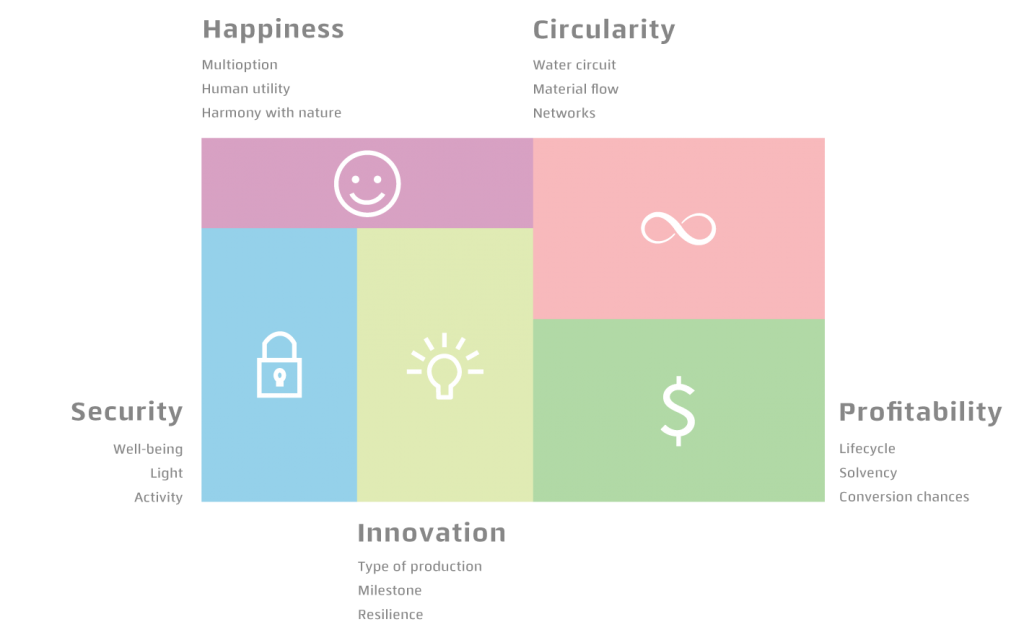
have an idea in mind
how can we help?